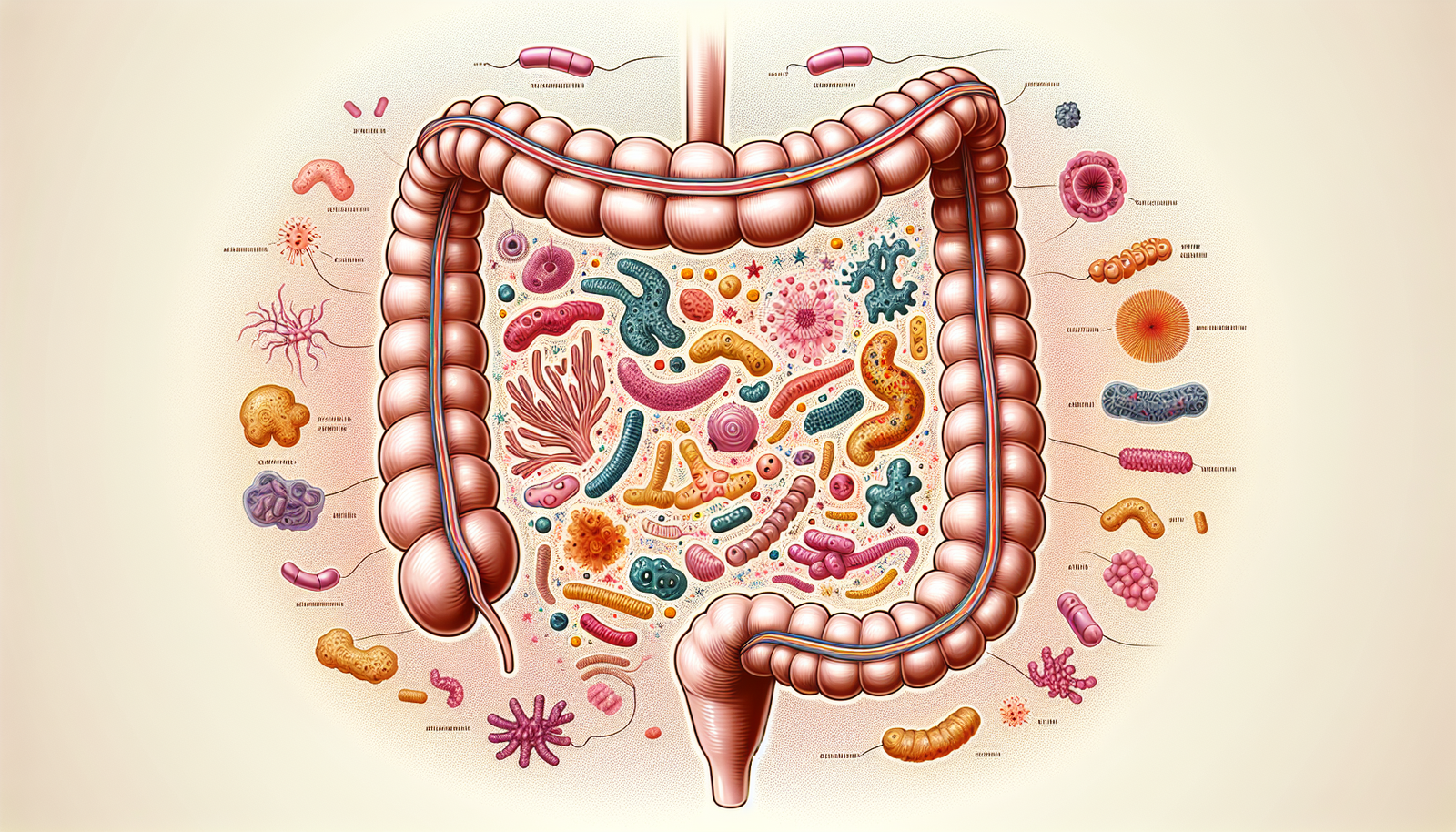The Best Fibers for a Healthy Gut
The Best Fibers for a Healthy Gut
Understanding Gut Health
Gut health is intricately linked to overall well-being. The gut plays a critical role in digestion, nutrient absorption, and immune response. An essential factor that contributes to a healthy gut is the consumption of dietary fibers. These are indigestible carbohydrates found mostly in plant foods that enhance digestive function and support beneficial gut microbiota.
Why Fiber Matters
Dietary fiber can be categorized into two main types: soluble and insoluble fiber. Both types provide unique benefits that support gut health.
-
Soluble Fiber: This type absorbs water and forms a gel-like consistency in the digestive tract, helping to slow digestion and stabilize blood sugar levels. Sources include oats, legumes, chia seeds, and fruits.
- Insoluble Fiber: This fiber adds bulk to stool and alleviates constipation. It promotes regular bowel movements by helping food pass through the digestive tract more quickly. Whole grains, nuts, and vegetables are rich in insoluble fiber.
Top Fibers for a Healthy Gut
1. Oats
Oats are an excellent source of beta-glucan, a type of soluble fiber. Beta-glucan has been shown to support the growth of beneficial gut bacteria, improving gut health and enhancing immune function. Oats also help regulate blood sugar levels, thereby offering additional health benefits. Add oats to your breakfast in the form of oatmeal or overnight oats for a gut-friendly start to your day.
2. Chia Seeds
Chia seeds are rich in fiber and act as a prebiotic, fuel for the beneficial bacteria in your gut. They contain both soluble and insoluble fibers and can absorb up to 10-12 times their weight in water, forming a gel-like substance in the digestive tract. This gel can slow digestion, aiding in better nutrient absorption and maintaining a feeling of fullness. Incorporate chia seeds into smoothies, yogurt, or as a thickening agent in various recipes.
3. Barley
Barley is another grain that excels in fiber content, particularly soluble fiber. It supports the growth of good bacteria, enhances the overall gut microbiome, and can reduce risks associated with various digestive disorders. With a nutty flavor, barley can be easily added to soups, salads, and casseroles.
4. Legumes
Legumes, including lentils, chickpeas, and beans, are high in both soluble and insoluble fibers and are excellent sources of plant-based protein. Their rich fiber content improves digestion, adds bulk to stool, and promotes regular bowel movements. Whether prepared as a main dish, added to salads, or blended into spreads like hummus, legumes are a versatile and nutritious addition to your diet.
5. Apples
Apples are a convenient source of soluble fiber, particularly pectin, known for its prebiotic properties. Pectin improves gut health by fostering the growth of beneficial gut bacteria while also promoting bowel regularity. Eating a whole apple with the skin maximizes fiber intake. Have it as a snack or add it to salads and smoothies for an easy fiber boost.
6. Avocado
Avocados are not only creamy and delicious; they are also fiber-rich, primarily in the form of soluble fiber. They are known for their healthy fats, making them a savory, nutrient-dense addition to meals. Avocados also promote feelings of fullness and support healthy digestion. Enjoy avocado in salads, on toast, or blended into smoothies.
7. Broccoli
Broccoli is packed with insoluble fiber, aiding in digestion and promoting regular bowel movements. Additionally, it contains sulforaphane, a compound that may support gut health by reducing inflammation and promoting the growth of beneficial gut bacteria. Raw or lightly steamed broccoli can be added to salads, stir-fries, or enjoyed as a side dish.
8. Flaxseeds
Flaxseeds are a powerhouse of soluble fiber and omega-3 fatty acids. These seeds promote easier bowel movements due to their high fiber content and healthy fats that lubricate the digestive tract. Flaxseeds can be ground and sprinkled on oatmeal, blended into smoothies, or added to baked goods for an extra nutrient boost.
9. Whole Grains
Whole grains like brown rice, quinoa, and whole wheat bread are excellent sources of fiber, particularly insoluble fiber. They help support regular digestion and maintain a healthy weight. The fiber in whole grains contributes to the feeling of fullness, reducing the likelihood of overeating. Incorporate whole grains into your meals as sides or in salads for substantial fiber intake.
10. Berries
Berries, including blueberries, raspberries, and strawberries, provide a good mix of soluble and insoluble fiber. They are not only delicious but low in calories and rich in antioxidants, supporting overall health. Enjoy berries as snacks, in desserts, or mix them into yogurt or oatmeal for added fiber and flavor.
11. Nuts
Nuts such as almonds, walnuts, and pistachios are nutritious snacks packed with fiber, healthy fats, vitamins, and minerals. They support gut health by promoting healthy digestion and providing prebiotics for beneficial gut bacteria. A handful of nuts a day can bolster fiber intake and contribute to overall satiety.
12. Psyllium Husk
Psyllium husk is a soluble fiber supplement derived from the seeds of the Plantago ovata plant. It is highly effective for relieving constipation, promoting regular bowel movements, and improving gut health. Psyllium husk can be mixed into smoothies, yogurt, or taken with water for a convenient way to boost fiber intake.
13. Leafy Greens
Leafy greens like spinach, kale, and Swiss chard are fiber-rich and low in calories, making them a perfect addition to a gut-friendly diet. They contain insoluble fiber that helps prevent constipation and supports gut health. Incorporate leafy greens into salads, smoothies, or as a side dish to ensure you get a variety of nutrients along with fiber.
14. Sweet Potatoes
Sweet potatoes are not only a rich source of fiber but also packed with vitamins A and C, potassium, and antioxidants. They provide both soluble and insoluble fiber, contributing to digestive health and enhancing feelings of fullness. Roasted, mashed, or added to stews, sweet potatoes are a delicious and nutritious option.
15. Brussels Sprouts
Brussels sprouts are cruciferous vegetables that provide fiber and are abundant in vitamins and minerals. Their high fiber content helps regulate bowel movements and improves gut health. Roast Brussels sprouts or include them in salads for an additional crunch and nutrient payoff.
Incorporating High-Fiber Foods into Your Diet
- Start Gradually: If you’re introducing more fiber into your diet, do so gradually to minimize digestive discomfort.
- Hydrate: When increasing fiber intake, drink plenty of water to support digestion and prevent issues like bloating or constipation.
- Mix It Up: Incorporate a variety of fiber sources to benefit from their unique properties and maximize gut health.
Fiber and the Gut Microbiome
A diverse and balanced gut microbiome thrives on a variety of fiber sources. Fermentable fibers serve as prebiotics, promoting the growth of beneficial bacteria in your intestines. This fermentation process produces short-chain fatty acids (SCFAs), which help maintain gut integrity, regulate the immune system, and may even reduce inflammation.
Gut-Friendly Cooking Techniques
- Steaming or Roasting: These methods preserve the fiber content and maximize the nutritional value of vegetables.
- Soaking: Soaking legumes and grains before cooking can help reduce cooking time and improve digestibility.
- Blending: Smoothies are an excellent way to incorporate several fiber-rich foods into one meal.
Monitoring Your Fiber Intake
The recommended daily amount of fiber is about 25 grams for adult women and 38 grams for adult men, decreasing after age 50. Keeping a food journal can help track fiber intake and ensure you are meeting your daily requirements for optimal gut health.
Conclusion
Prioritizing a high-fiber diet filled with various sources of soluble and insoluble fibers can vastly improve gut health and overall well-being. By including a range of fiber-rich foods in your daily meals, you’ll support your digestive system, enhance nutrient absorption, and cultivate a flourishing gut microbiome. Whether you are looking to improve digestion, maintain a healthy weight, or boost your immune system, focusing on fiber is a vital first step in your journey toward better health.








